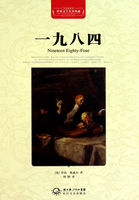'Pooh--what shall we hear next?' Miss Aldclyffe surveyed Cytherea's face with leisurely criticism. 'You are breaking your heart again about that worthless young Springrove. I knew how it would be. It is as Hallam says of Juliet--what little reason you may have possessed originally has all been whirled away by this love. I shan't take this notice, mind.'
'Do let me go!'
Miss Aldclyffe took her new pet's hand, and said with severity, 'As to hindering you, if you are determined to go, of course that's absurd. But you are not now in a state of mind fit for deciding upon any such proceeding, and I shall not listen to what you have to say. Now, Cythie, come with me; we'll let this volcano burst and spend itself, and after that we'll see what had better be done.'
She took Cytherea into her workroom, opened a drawer, and drew forth a roll of linen.
'This is some embroidery I began one day, and now I should like it finished.'
She then preceded the maiden upstairs to Cytherea's own room.
'There,' she said, 'now sit down here, go on with this work, and remember one thing--that you are not to leave the room on any pretext whatever for two hours unless I send for you--I insist kindly, dear. Whilst you stitch--you are to stitch, recollect, and not go mooning out of the window--think over the whole matter, and get cooled; don't let the foolish love-affair prevent your thinking as a woman of the world. If at the end of that time you still say you must leave me, you may. I will have no more to say in the matter. Come, sit down, and promise to sit here the time I name.'
To hearts in a despairing mood, compulsion seems a relief; and docility was at all times natural to Cytherea. She promised, and sat down. Miss Aldclyffe shut the door upon her and retreated.
She sewed, stopped to think, shed a tear or two, recollected the articles of the treaty, and sewed again; and at length fell into a reverie which took no account whatever of the lapse of time.
4. TEN TO TWELVE O'CLOCK A.M.
A quarter of an hour might have passed when her thoughts became attracted from the past to the present by unwonted movements downstairs. She opened the door and listened.
There were hurryings along passages, opening and shutting of doors, trampling in the stable-yard. She went across into another bedroom, from which a view of the stable-yard could be obtained, and arrived there just in time to see the figure of the man who had driven her from the station vanishing down the coach-road on a black horse--galloping at the top of the animal's speed.
Another man went off in the direction of the village.
Whatever had occurred, it did not seem to be her duty to inquire or meddle with it, stranger and dependent as she was, unless she were requested to, especially after Miss Aldclyffe's strict charge to her. She sat down again, determined to let no idle curiosity influence her movements.
Her window commanded the front of the house; and the next thing she saw was a clergyman walk up and enter the door.
All was silent again till, a long time after the first man had left, he returned again on the same horse, now matted with sweat and trotting behind a carriage in which sat an elderly gentleman driven by a lad in livery. These came to the house, entered, and all was again the same as before.















